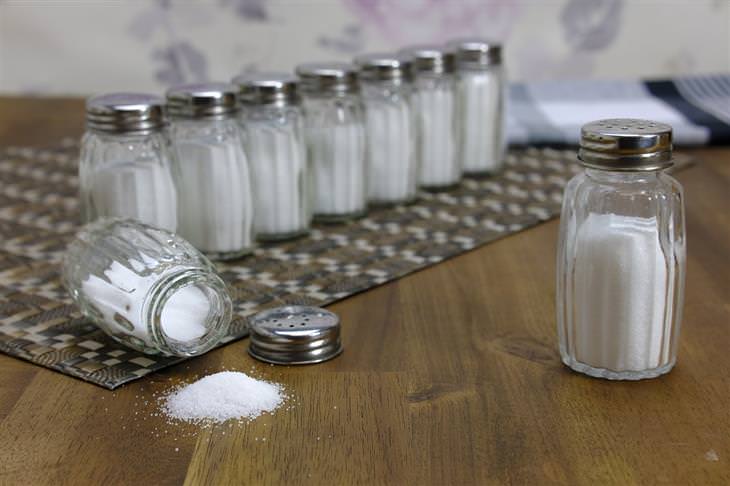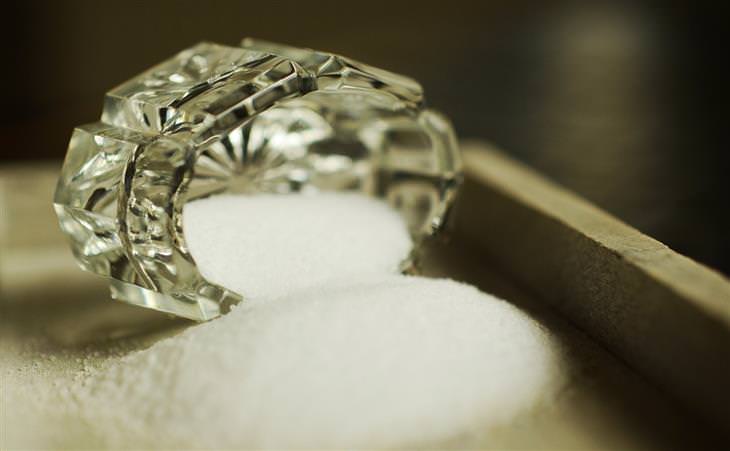Salt Isn’t Only Bad for the Heart but Also for the Brain!
Astrologer Vighnesh India: +91 9445548316 / 9382633377 USA: +1 (425) 358-6565 / +1 (716) 777-3857 Wat'sapp..Consultation by web appointment www.astrovighnesh.com
Astrologer in US : #Astrologer in USA : #Astrologer in India : #Astrologer in Chennai : # Best Astrologer in :#Pancha Pakshi Astrology : #Astrologer in Malaysia : #Astrologer in Sri Lanka : #Astrologer in Dubai : #Astrologer in UAE
It’s
long been known that too much salt intake is linked to an increase in
blood pressure leading to a lier risk of heart attack or stroke, but now
there’s another reason why it is recommended to stay away from this
white seasoning as much as possible. In a study conducted at the Feil Family Brain and Mind Research Institute in New York,
high salt consumption was associated with memory and learning
difficulties, and the surprising thing is that this problem is due to
the brain's connection to the intestines.
The new connection found between the brain and the intestines
When
researchers examined the reason behind their study results, which
showed that the brain suffered damage after consuming a lot of salt,
they found that there was a connection between the small intestine and
the brain. The high amount of salt consumed stimulated immune changes in
the small intestine, which led to poor blood flow to the brain, thereby
impairing cognitive functioning.
If
you’ve reached middle age, we have bad news for you - the harmful
effect on the brain worsens as the years pass. However, there’s also
some good news - when you stop consuming a lot of salt the brain returns
to normal function.
So, how can you continue to consume salt and prevent its harmful effects?
You
may think that this study’s motive is to encourage people to stop
consuming salt, but it really isn’t. You just have to know how to
consume it in moderation and in the right quantity for your body. The
American Heart Association recommends consuming 2,300 mg of sodium per
day or less, which is about a teaspoon of salt, but most people consume
more, not necessarily because they add salt to their food, but because a
lot of processed food comes packed with sodium. You’re probably
consuming more salt than you think and need:
- Bread - One slice may not seem to contain too much salt, but it contains 230 mg of sodium, multiply it by the number of slices you eat per day and you’ll find that you consume far more salt than you think.
- Pizza - One slice of pizza can contain 760 mg of sodium, but rarely is anyone ever satisfied with only one?
- Instant soups and meals - Within a few minutes, you can prepare yourself a serving of about 940 mg of sodium or more, so make sure to check the sodium content before buying these products. Giving them up altogether would be the smart move here.
- Cold cuts - 3 grams of turkey cold cuts will put 780 mg of sodium in your body, and the same amount of salami will add about 1,300 mg of sodium to your diet, so it’s recommended to give up the cold cuts.
- Cottage cheese – There’s no need to throw this commodity out of the house, but you should reduce how much you eat of it. One cup of cottage cheese contains 920 mg of sodium, so it is recommended to consume less than this cheese or at least look for its lowered or sodium-free version.







